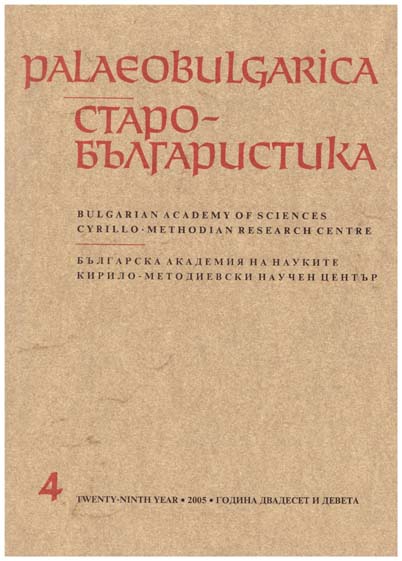Редки думи и hapax legomena в старобългарския превод на Диалозите на Псевдо-Кесарий
Rare Words and Hapax Legomena in the Old Bulgarian Translation of the Erotapokriseis of Pseudo-Kaisarios
Author(s): Yavor MiltenovSubject(s): Language studies, South Slavic Languages
Published by: Кирило-Методиевски научен център при Българска академия на науките
Summary/Abstract: The Slavic manuscripts containing the Erotapokriseis of Pseudo-Kaisarios are late, from the 15th–17th century, all without exception being of Russian origin, orthography and linguistic features. All copies preserve, to a greater or lesser extent, an archaic lexical layer that was not affected by the russification of the text, applied mainly at the phonetic level. The vocabulary of the Slavic version of the Erotapokriseis shows categorically that the translation was made in Bulgaria in the 10th century. The only detailed observations on the lexical material, textology and history of the Slavic version of the Erotapokriseis date from the late 19th century and were made by Gorskij and Nevostruev, and by Archimandrite Leonid. Later studies are based on their conclusions. The article gives some new data about hapax legomena and rare words such as двалма (ίπποφορβός), твалага (δάμαλις), тевёгъ (ζεύγλη), колёмогопоставленё¬ (σκηνοπηγία), ошён©тё с (άνασφάλλειν), стьпль (κάττα), тръмы (σίμβλος).
Journal: PALAEOBULGARICA / СТАРОБЪЛГАРИСТИКА
- Issue Year: 2005
- Issue No: 4
- Page Range: 75-83
- Page Count: 9
- Language: Bulgarian
- Content File-PDF

